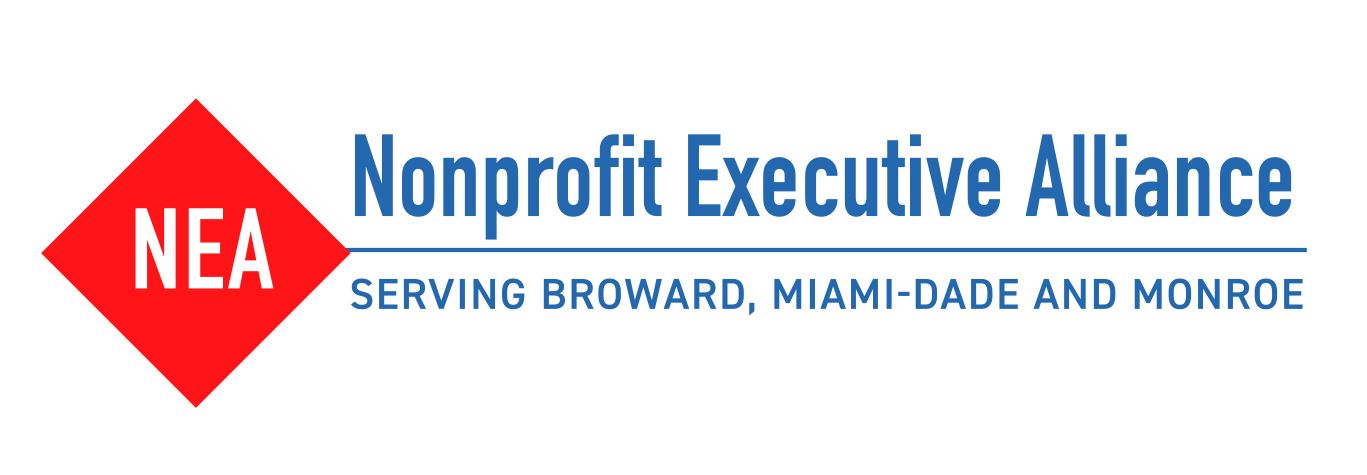|

NEA 101: Leading Together, Growing Stronger
Each month, the Nonprofit Executive Alliance (NEA) welcomes nonprofit leaders to NEA 101, an interactive session designed to introduce members and guests to the powerful network, resources, and collaborative opportunities that define our nonprofit community.
Led by Rixys Alfonso, CEO of the NEA, and Sandra Veszi Einhorn, Strategy Officer, NEA 101 is more than an orientation, it’s a chance to connect, learn, and engage with peers who share your passion for impact. Together, Rixys and Sandra combine deep experience in nonprofit leadership, advocacy, and strategic partnerships to help you understand how to make the most of your NEA membership.
NEA 101 gives nonprofit CEOs and Executive Directors a closer look at the mission and vision behind Florida’s largest coalition of nonprofit leaders, membership benefits such as peer Affinity Groups, monthly CEO meetings, and advocacy initiatives, and practical ways to get involved and collaborate across counties and sectors. Participants also explore the power of collective leadership in strengthening South Florida’s nonprofit voice and visibility.
No nonprofit leader succeeds in isolation. NEA 101 highlights the importance of shared learning, support, and advocacy, helping you grow as a leader while contributing to a stronger, more connected sector.
If you’re a nonprofit CEO or Executive Director looking to expand your network, exchange ideas, and join a community of peers who are shaping the future of South Florida, NEA 101 is the place to start.
Together, with Rixys and Sandra guiding the conversation, every session reinforces the NEA’s mission: to elevate, protect, and amplify the nonprofit sector as an essential partner in building stronger, more resilient communities.
Maximizing 2026 health benefits: a post-enrollment check-up As the new year begins, nonprofit leaders like you may be looking for ways to support your team’s wellness, strengthen engagement, and make every dollar count. Reviewing health coverage options after open enrollment— a simple “benefits check-up”—is a smart way to do all three. Open enrollment is often treated as a finish line; but in reality, it’s the perfect time to pause, reflect, and make sure your benefits are working as hard as you are. A quick post-enrollment review helps you assess participation, identify gaps, and fine-tune plans before the year gets underway. Find what’s missing—and make it work for you Even strong health plan choices can leave gaps. Are employees taking full advantage of preventive screenings, chronic condition support, or wellness incentives? Are mental health and virtual visit options easy to access? Could value-based care providers help your team save money while improving health outcomes? Should you offer dental, vision or supplemental benefits. Once you know where the gaps are, you can take action. Simple steps—like one-on-one consultations, quick webinars, or short Q&A sessions—can give employees the confidence to use their coverage effectively. When employees understand their options, they’re more likely to seek preventive care, participate in wellness programs, and stay invested in their overall health. Small, targeted efforts can make a big difference—helping your team feel supported and cared for while maximizing the value of your health care benefits. Use insights to strengthen strategy and stay ahead A thoughtful benefits check-up doesn’t just help employees—it can strengthen your organization too. Tracking participation, analyzing health trends, and surveying employee satisfaction provides insights that drive smarter decision-making. Leaders can use that data to refine plan design, enhance wellness programs, and build a culture of care that attracts and retains top talent. Additionally, staying aware of market trends keeps your organization competitive. Health care is evolving quickly—from virtual-first care and integrated mental health services to holistic wellness programs that support both body and mind. Regularly reviewing benchmarks, employee feedback, and industry insights such as those found on Florida Blue’s employer insights website, ensures your strategy keeps pace with what today’s workforce values most. Start the year with confidence Ultimately, a post-enrollment review isn’t just a box to check—it’s a proactive way to align your benefits with your mission and connect with your team. Taking time now to review and refine your coverage sets the stage for a healthier, more engaged, and productive year ahead. If you’d like guidance or a fresh perspective on how to get the most from your benefits, email a Florida Blue agent or your local representative, Ana Castellanos, Ana.Castellanos@bcbsfl.com, your Florida Blue representative, to schedule a short benefits check-up. It’s an easy way to start the year with care, clarity, and confidence. Disclaimers Health Benefit Plans have limitations and exclusions. Driven by its mission of helping people and communities achieve better health, Florida Blue serves more than 6 million members across the state. Headquartered in Jacksonville, Fla., Florida Blue, a trade name of Blue Cross and Blue Shield of Florida, Inc., is an Independent Licensee of the Blue Cross and Blue Shield Association. For additional information about Florida Blue, please visit www.floridablue.com or call (877) 352-5830. 124028_1225 |
Copyright 2025. Nonprofit Executive Alliance
PO Box 4640 Fort Lauderdale, FL 33338 / 305-558-8877 / EMAIL

